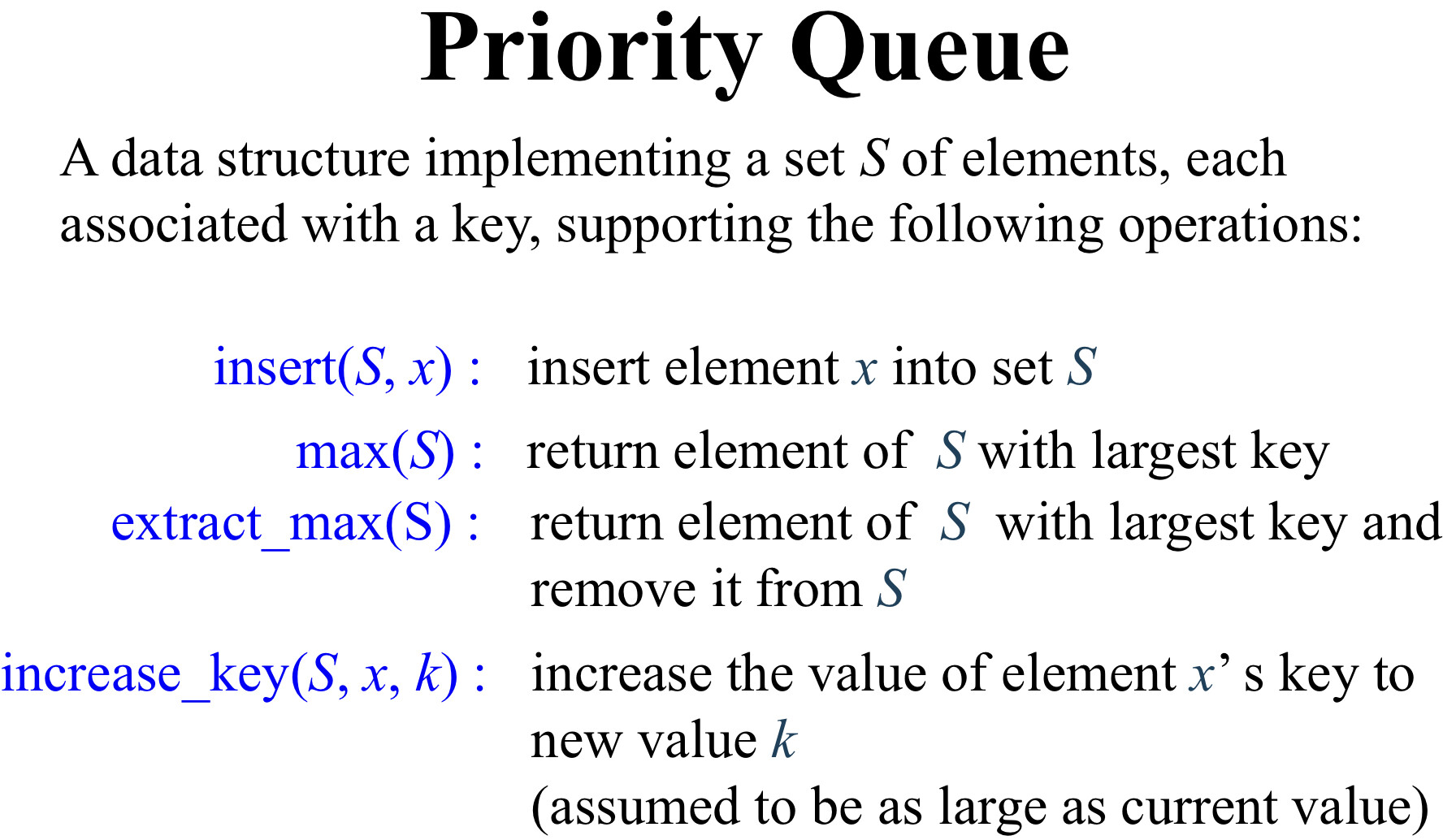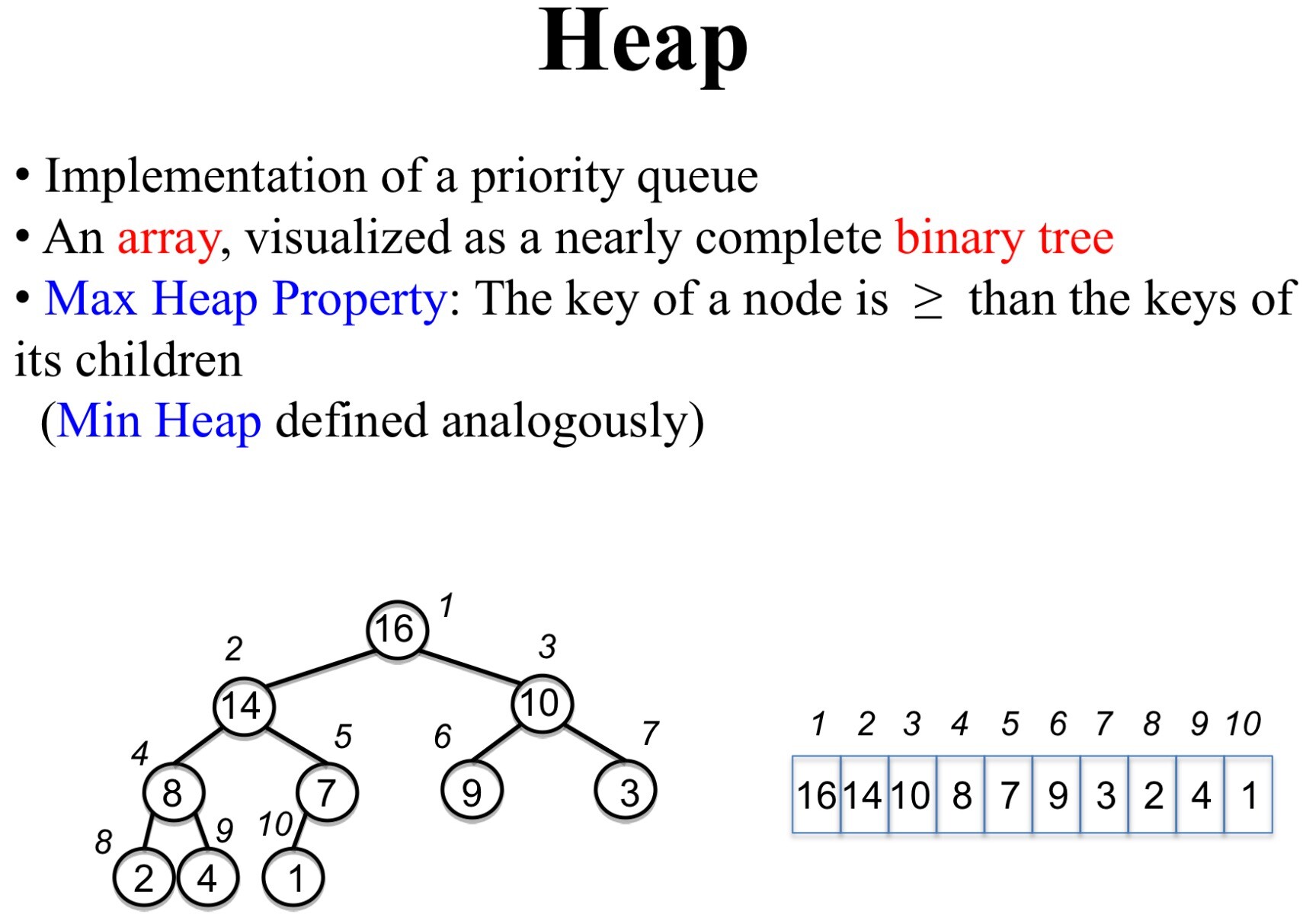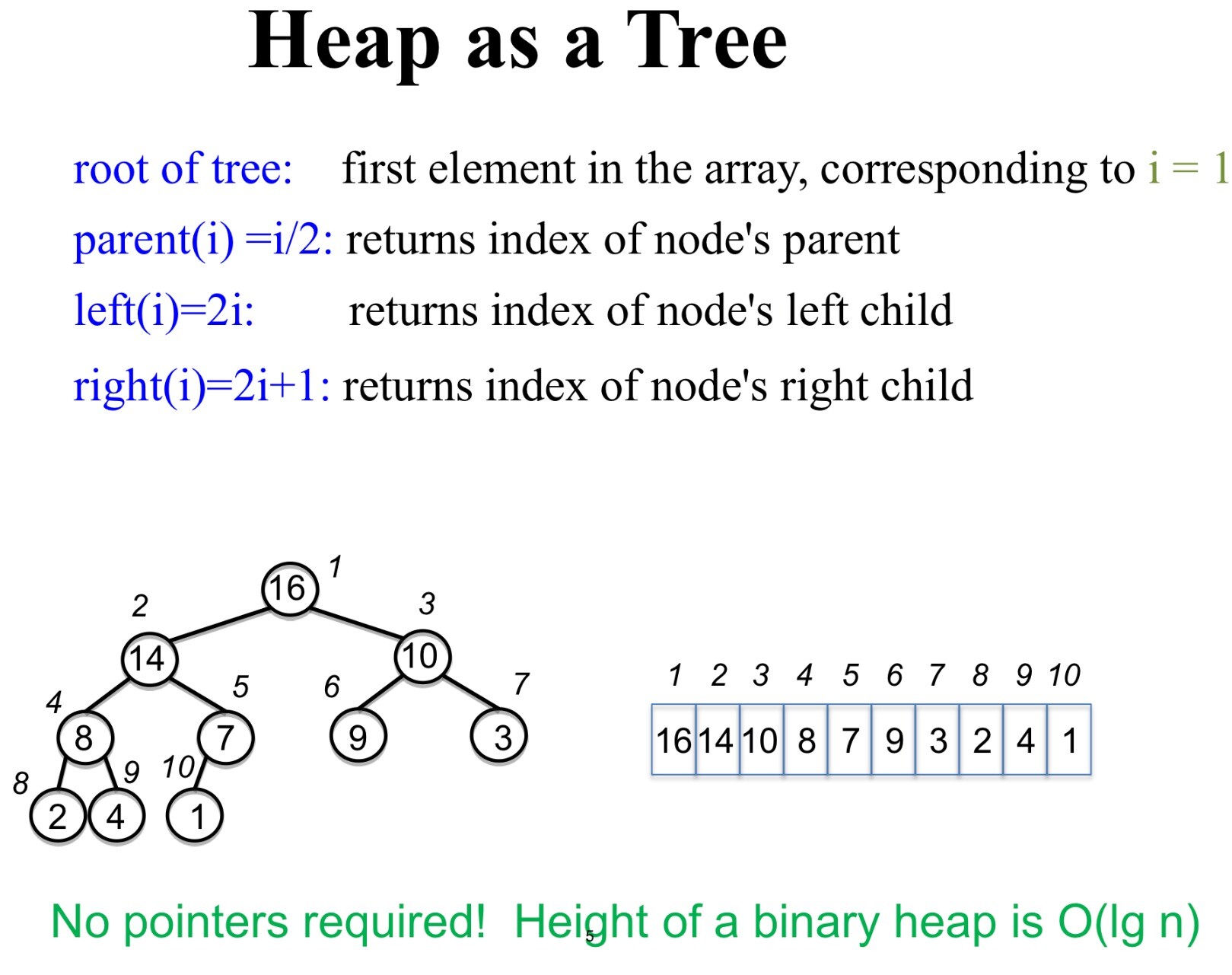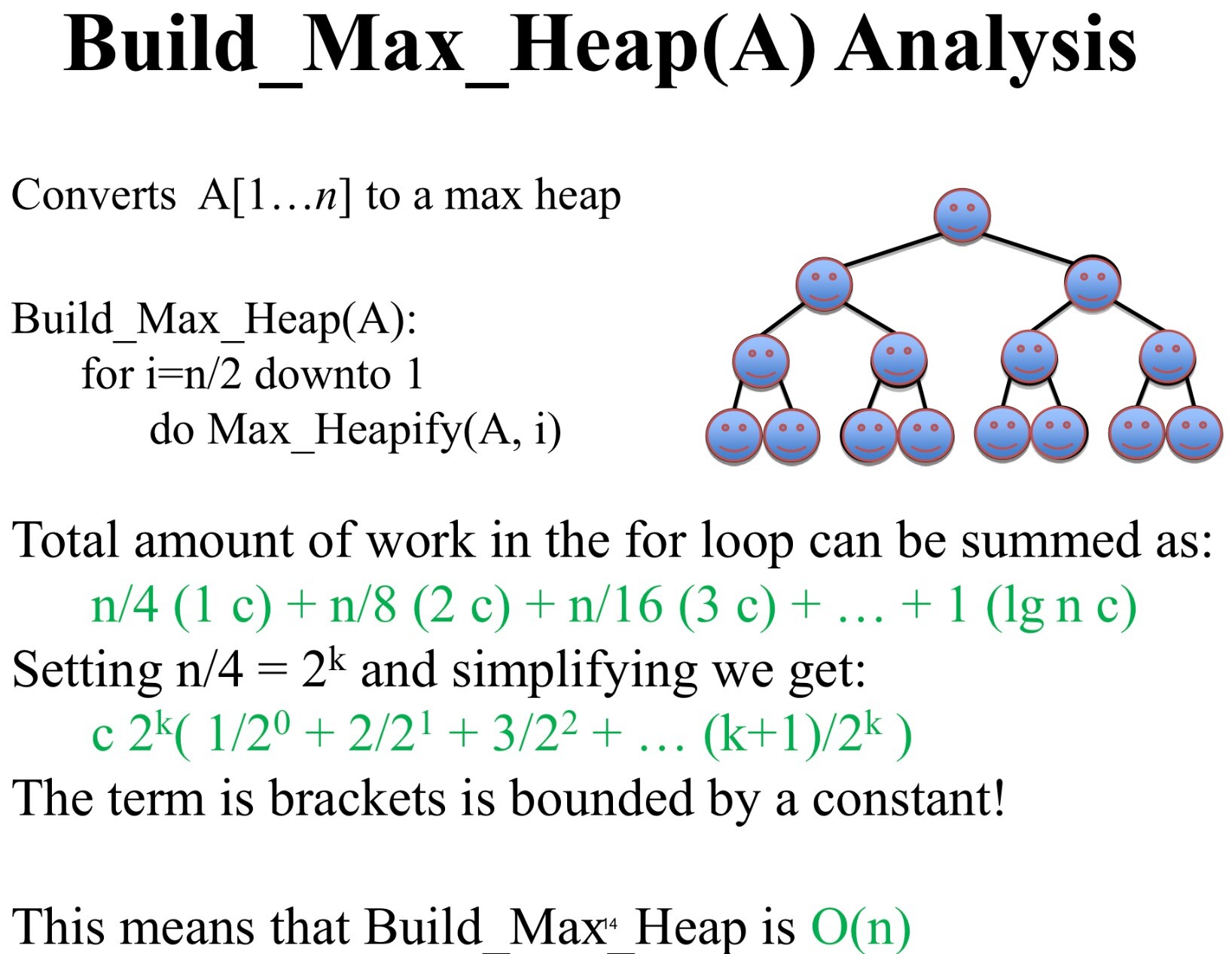Sorting
The problem of sorting
Problems that become easy once items are in sorted order
- Find a median, or find closest paris
- Binary search, identify statistical outliers
Non-obvious applications
- Data compression: sorting finds duplicates
- Computer graphics: rendering scenes front to back
Insertion sort
Running time: O(n^2) because O(n^2) compares and O(n^2) swaps e.g. when input is A=[n,…,2,1]
Binary Insertion sort
It will take O(log n) time. However, shifting the elements after insertion will still take O(n) time
Complexity: O(n log n) comparisons, n^2 swaps
Merge soft (Key subroutine: Merge)
If n=1, done(nothing to sort). Otherwise, recursively sort A[1..n/2] and A[n/2+1..n]. “Merge” the two sorted sub-arrays
Running time = O(n) to merge a total of n elements (linear time)
Heap Sort
Sorting Strategy:
- Build Max Heap from unordered array;
- Find maximum element
A[l]; - Swap elements A[n] and A[l]; now max element is at the end of the array
- Discard node n from heap(by decrementing heap-size variable)
- New root may violate max heap property, but its children are max heaps. Run
max_heapifyto fix this - Go to Step 2 unless heap is empty
Running time
After n iterations the Heap is empty every iteration involves a swap and a max_heapify operation; hence it takes O(log n) time. Overall O(n log n)
Data structures



Heap Operations
build_max_help produce a max-heap from an unordered array
max_heapify correct a single violation of the heap property in a subtree at its root
insert, extract_max, heapsort
Max_heapify with O(log n)
Assume that the trees rooted at left(i) and right(i) are max-heaps
# max_Heapify Pseudocide
l=left(i)
r=right(i)
if(l<=heap_size(A) and A[l]>A[i])
largest =l
else
largest=i
if (r<=heap-size(A) and A[r]>A[largest])
largest=r
if largest !=i:
exchange A[i] and A[largest]
# Max_Heapify(A, largest)
Build_Max_Heap
for i=n/2 down to 1
do Max_Heapify(A, i)

Source
https://ocw.mit.edu/courses/6-006-introduction-to-algorithms-fall-2011/pages/lecture-notes/